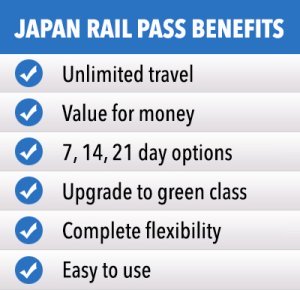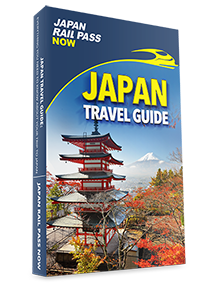Costs and Budgets

The cost of travelling to Japan varies per person, and is dependent on several factors such as airfare, accommodation, transportation, food, entrance fees to attractions, and other miscellaneous expenses.
 Airfare
Airfare
When visiting Japan, plane tickets usually eat up the biggest portion of most people’s travel budget.
A regular-priced return ticket from Sydney to Tokyo may cost anything from A$1,000 (83,000 yen) to A$2,000 (166,000 yen) during the off-peak seasons, and from $2,000 (166,000 yen) upwards during peak seasons.
To minimise costs, look out for discounted rates and promotions by some airline companies which you could score a fare from around $600 with Jetstar/Air Asia with a stopover or two. Also, book several months ahead and consider travelling off-peak (which has the additional advantage of fewer crowds at attractions you may wish to visit).
Read more information on Getting to Japan
 Accommodation
Accommodation
There is a wide selection of accommodation available for tourists in Japan. There are traditional, Japanese-themed lodgings, and Western types. Their rates vary from 1,000 yen per bed for one night to 50,000 yen or more per room.
Hostels/Dormitories
Hostels and dormitories generally offer the cheapest rates among all types of accommodation. They are perfect for travellers who are on a tight budget and do not mind sharing a room and bathroom with several other people. They are found in many major Japanese cities and their prices range between 1,000 yen and 5,000 yen per person per night.
Business hotels
Business hotels are also plentiful around Japan and they fall into the medium-cost accommodation category. They generally charge around 5,000 yen to 10,000 yen for a single room for one night’s stay, and between 7,000 yen and 15,000 yen for a double room.
Ryokan
For those looking for Japanese-style accommodation, ryokan are highly recommended. These inns are quite common throughout Japan, most especially in the onsen or hot spring towns. Their rooms have tatami flooring and futon beds, and the place has Japanese-style baths. They also typically serve Japanese cuisine for breakfast and dinner.
A one-night stay can cost from 15,000 yen to 30,000 yen per person.
Temple lodgings
One option that is popular with foreigners in Japan is to stay at least one night at a temple.
Mount Koya, located in Koyasan, is a well-known temple district that offers about 50 options for temple lodgings that cost anywhere between 3,000 yen and 20,000 yen per person per night. While the price is on the expensive side for accommodation, the accompanying experience of living a monk’s lifestyle, participating in morning prayers and eating monks’ food, is well worth the extra cost.
Capsules
Capsule hotels are for any traveller purely needing a place to spend the night. They offer small capsule rooms equipped with a television, coin lockers, and shared bathrooms. A one-night stay can cost between 3,000 yen and 5,000 yen.
Manga cafes
Manga cafes are 24-hour establishments where people can read manga or surf the net in individual booths with seats. They charge only about 1,500 yen to 3,000 yen per person and, because they are quite cheap, many make these places an option for short-term, overnight accommodation.
Western hotels
There are several Western-style hotels in Japan, and they offer facilities and amenities similar to that of 4-star and 5-star hotels found in the West. Their prices range from 20,000 yen to 50,000 yen (or even more) per room for one night.
Apartments
For tourists staying in Japan for an extended period of time, there are apartments that offer weekly or monthly rental. Some of these places are furnished with the basic appliances and furniture, and they are ideal for foreigners staying in just one city for that entire time period. One month’s rent for a small studio apartment may come to more than 40,000 yen.
 Local Public Transportation
Local Public Transportation
Trains
Trains are probably the most cost effective way of getting around Japan. In the major cities, such as Tokyo and Osaka, metro train services are extensive and efficient, and you can easily go from one tourist attraction to another via their interconnected lines.
Buses
Buses are also a popular mode of transportation around Japan, especially when travelling within the smaller cities, as they provide better access to tourist spots. In addition, there are also buses that provide intercity services (highway buses) and overnight travel services (overnight buses).
Bicycles
Bicycles are commonly used throughout Japan, and they are a great option for travellers who wish to save money on fares for trains and buses. They also enable you to explore a city or town more thoroughly.
In the country’s top tourist destinations, there are bike racks and bike shops where you can hire a bike. Many hotels and hostels also provide free use of bicycles to their guests.
Passes
Look into purchasing rail or bus passes to save money while in Japan.
Japan Railways offer Japan Rail Passes for unlimited use of the Shinkansen and other JR-operated trains and buses within a particular time period, and many Japanese cities have one-day bus or metro passes available for unlimited rides on the local buses and metro lines at discounted prices.
 Food
Food
While in Japan, trying out the local cuisine is always a must-do as Japanese foods are highly-rated by most visitors. Enjoying these unique and delicious dishes does not always require you to break your budget.
Convenience stores
Convenience stores are a lifesaver for budget travellers. There is one at almost every corner throughout the country, and they sell a wide selection of cheap Japanese food such as rice balls, bread, bento (lunch boxes), ramen, sandwiches, beverages, and more. A day’s worth of food from convenience stores can cost as little as 1,000 yen to 3,000 yen.
Coffee shops, food stalls, and fast foods
There are numerous food kiosks, stalls and fast foods found at train stations all over the country, and they are good places to have a quick meal of ramen or curry rice or to purchase food before you catch your train. Total cost of food purchased from these establishments may fall between 1,500 yen and 5,000 yen per day.
High-end restaurants
If money is not an issue, there are many fine dining restaurants in Japan that prepare top quality local cuisine — from sushi to ramen to Kobe beef. These places usually require reservations, and one full meal may cost at least 2,000 yen per person.
 Sightseeing
Sightseeing
Many of Japan’s tourist attractions can be accessed free of charge, particularly some of its temples, shrines, museums, parks, and gardens, so if you want to keep your expenses to a minimum, make sure to research these before you head out.
Temples, shrines, and castles
Entrance fees to temples, shrines, and castles generally cost between 100 yen and 1,000 yen, and these usually give you full access to the sites.
Museums
Museum fees range from 500 yen to 3,000 yen per person, depending on the exhibitions on display or if there are special events being held when you visit.
Theme parks
Theme parks in the country are quite expensive, especially the big ones — Disney and Universal Studios — which can cost up to 13,000 yen including the express passes.












